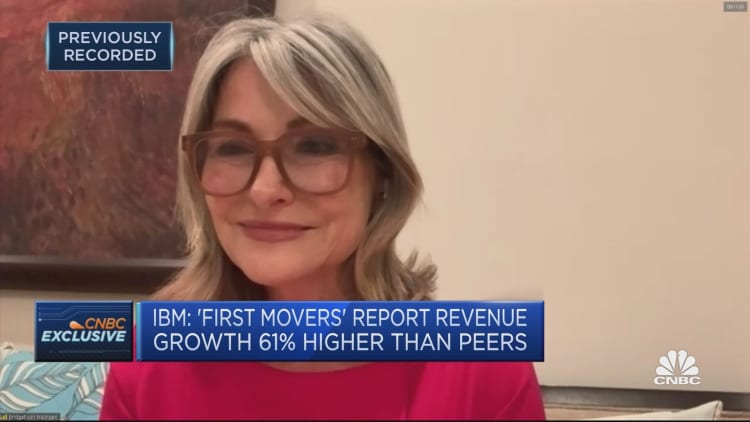Among those earning over $100,000, nearly 1 in 3 millennial and Gen X women report being the primary income earner or contributing the largest share of the household finances. Only about 20% of women in previous generations carried their families financially.
Despite the Covid-19 pandemic being tougher on women's earnings and employment, about 54% of all women who can be considered high earners report earning wages that are greater than or equal to that of their spouse or partner, according to a survey fielded by Wells Fargo in January among over 2,000 women residing in households with at least $100,000 in income or at least $250,000 in assets.
Younger generations of high-earning women are shouldering the financial responsibility of their families' needs more than baby boomers (defined here as those born between 1946 and 1964) or the so-called "traditionalists," as the Wells Fargo report refers to those born between 1928 and 1945 (also known as the Silent Generation).
Just over half of millennial (those born between 1981 and 1996) and Gen X (those born between 1965 and 1980) women say they take care of the family finances. That's compared to only 40% of women in the baby boomer and traditionalist generations.
Yet many women say they feel ill-prepared and anxious when it comes to their financial skills. About 68% of millennial and Gen X women say they are extremely anxious when there is a lot of uncertainty about their finances. This uncertainty can stem from volatility in the stock market, as well as from more personal issues issues such as budgeting and job security.
"The financial anxiety experienced by the younger generations during times of economic uncertainty is likely a direct reflection of their relative inexperience getting through financial hardship," Nancy Amick, senior family dynamics consultant with the advice center within Wells Fargo Wealth & Investment Management, said in a statement.
To reduce anxiety, Amick recommends taking the time to research how to effectively manage your money. "Knowledge is power," she says, adding that a better understanding can help women feel more confident.
Becoming more knowledgeable can be as simple as asking friends and family for advice, she says.
Another proven way to reduce anxiety is to write down financial goals. "Having a financial plan with specific goals and action steps can help you feel more confident about your future," Amick says.
It's also important for women to articulate to both themselves, as well as to their partners and family, what's important to them, even if it's outside of their direct finances, Amick says. That can include your career path, family situation and health.
Check out: The best credit cards for building credit of 2021
Don't miss: Unemployment rate understates what's going on, expert says, as millions of women remain out of workforce



